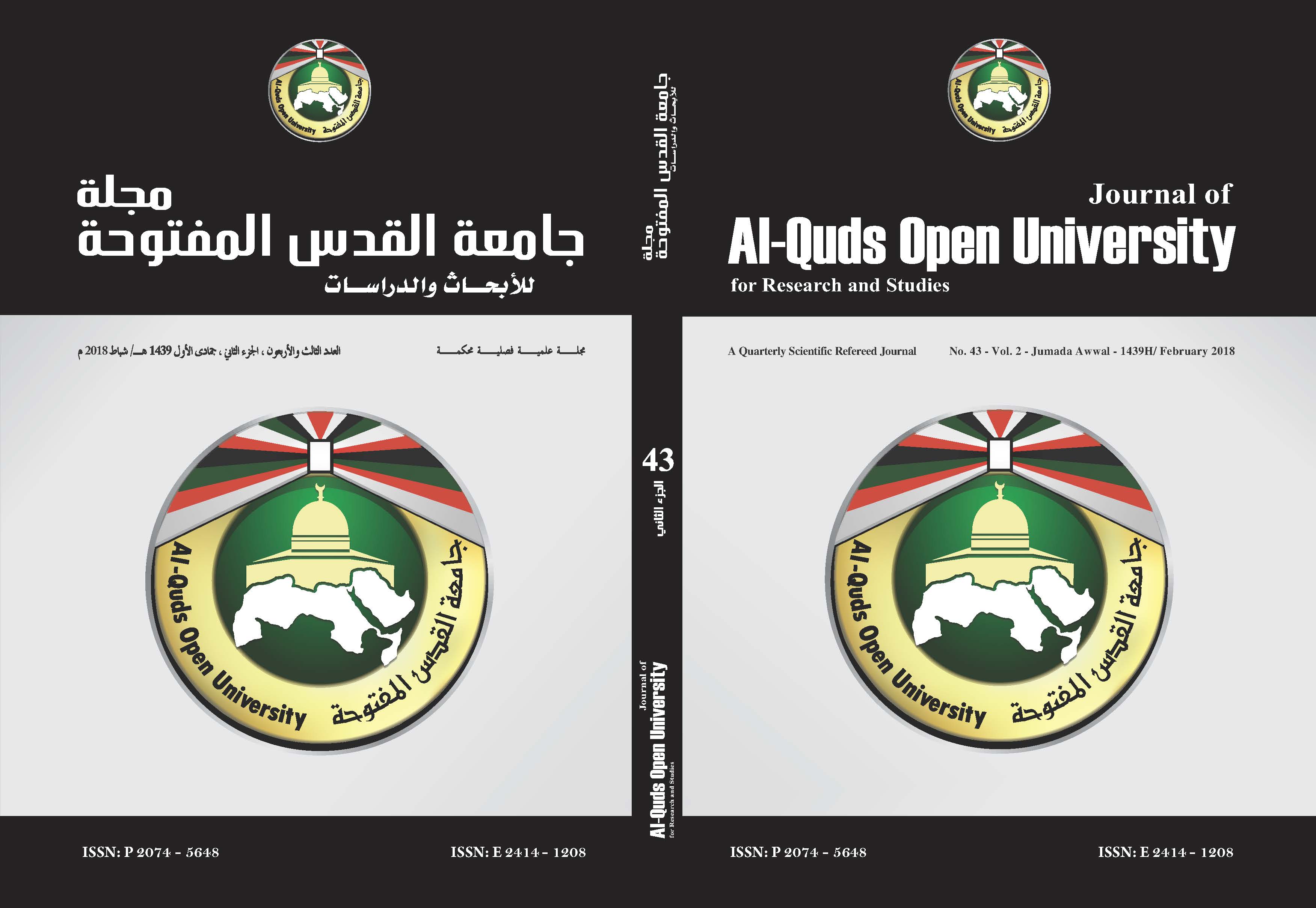The Impact of Using Hebrew Language on the Arabic Language at Israeli Arabic Schools from the perspective of Schoolteachers and Parents in the Galilee Area
Keywords:
Hebrew language, Arabic language, schoolteachers, parents of pupils, galilee, NazarethAbstract
The present study aims to identify the perspectives of teachers and parents of students at Arabic schools in Galilee area, through examining how the use of Hebrew language and living under a Hebrew culture impact learning and practicing Arabic language. The researcher used Qualitative analysis through deigning a questionnaire with open-ended questions for the sample of the study that consisted of teachers in the Galilee area. A sample of 31 schools were chosen to represent 10% of the total number of Arabic schools (314). Moreover, the researcher interviewed a group of teachers within focus groups, which reinforced the questionnaire results.
The outcomes of the survey revealed difficulties in the use of Arabic language among students in the schools in terms of writing and reading Arabic texts. 22.7% of interviewed teachers revealed that they use Hebrew intensively inside classes, while 59.1% use it sometimes, and 18.2% use it rarely throughout their teaching.
Most teachers refereed to the frequent use of Hebrew outside schools as the reason for these difficulties. Respondents to the questionnaire revealed that they also use Hebrew at home while talking to their children. 31.8% admitted that they use Hebrew most of the time at home, 27.3% use it sometimes, while 40.9% said they use it rarely.
The study has revealed a clear weakness regarding Arabic language skills and the ability to use it frequently in academic context. As for oral skills, the study indicated the tendency of majority of students to include some Hebrew words while speaking Arabic.
Teachers referred to the deliberate policy of marginalization of the Arabic language by the Israeli government, in particular among young generations, as a reason for these tendencies, and they indicated that this would ultimately influence their Palestinian Arabic identity.
The research urges the Arabic community in Israel to resist the obliteration of the Arabic identity, by adopting a robust strategy to empower the use of Arabic language both inside and outside schools and in all fields of life.
Downloads
Published
How to Cite
Issue
Section
License
- The editorial board confirms its commitment to the intellectual property rights
- Researchers also have to commit to the intellectual property rights.
- The research copyrights and publication are owned by the Journal once the researcher is notified about the approval of the paper. The scientific materials published or approved for publishing in the Journal should not be republished unless a written acknowledgment is obtained by the Deanship of Scientific Research.
- Research papers should not be published or republished unless a written acknowledgement is obtained from the Deanship of Scientific Research.
- The researcher has the right to accredit the research to himself, and to place his name on all the copies, editions and volumes published.
- The author has the right to request the accreditation of the published papers to himself.













_2.png)
_.png)
_2.png)
_1.png)
_.png)

